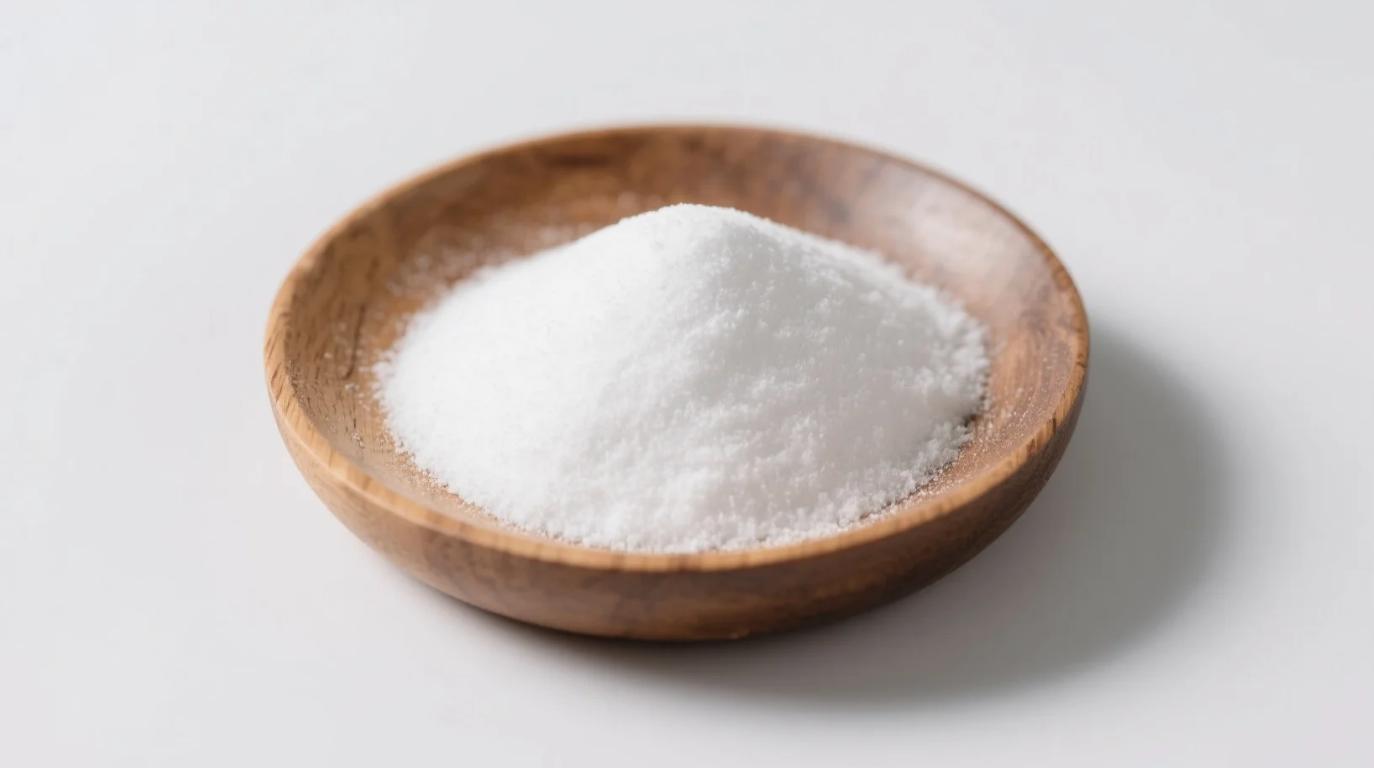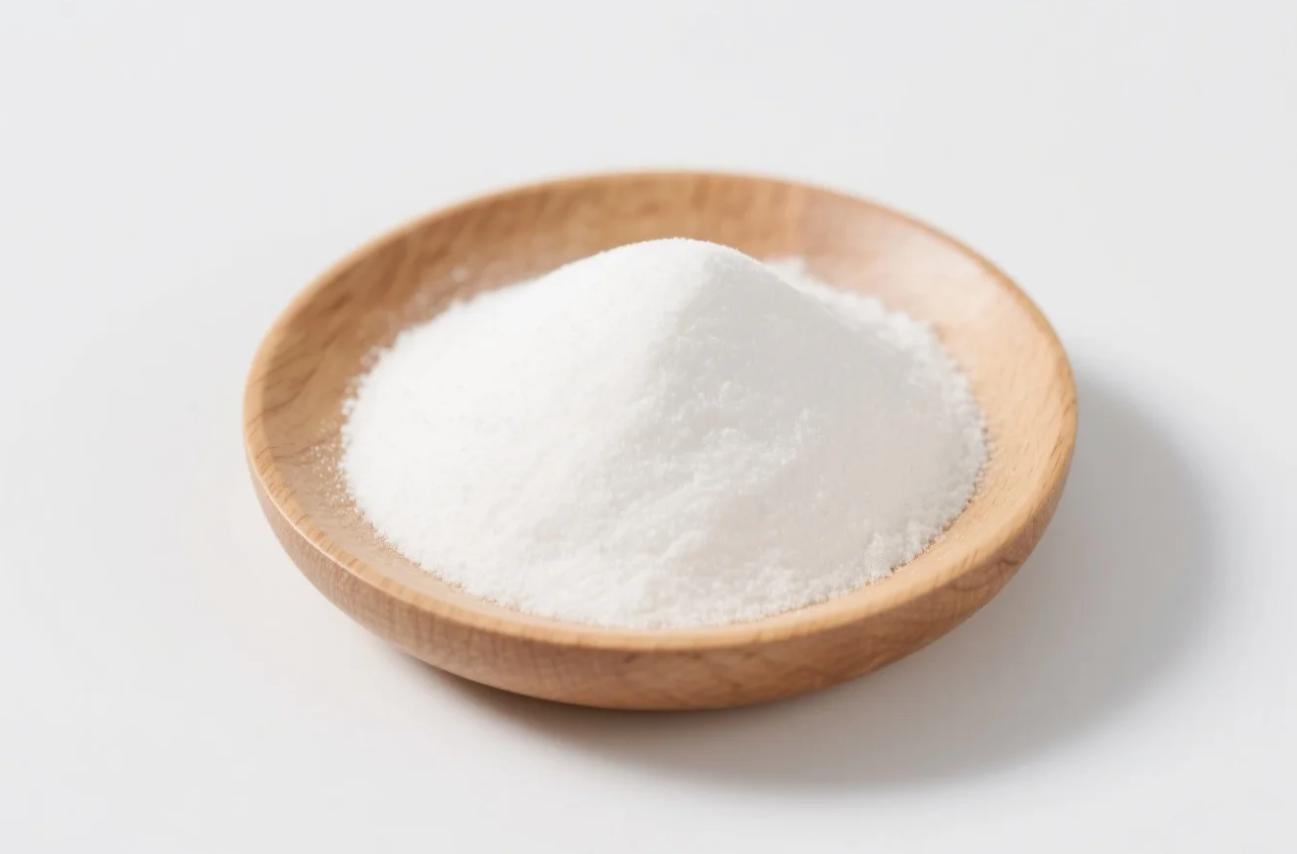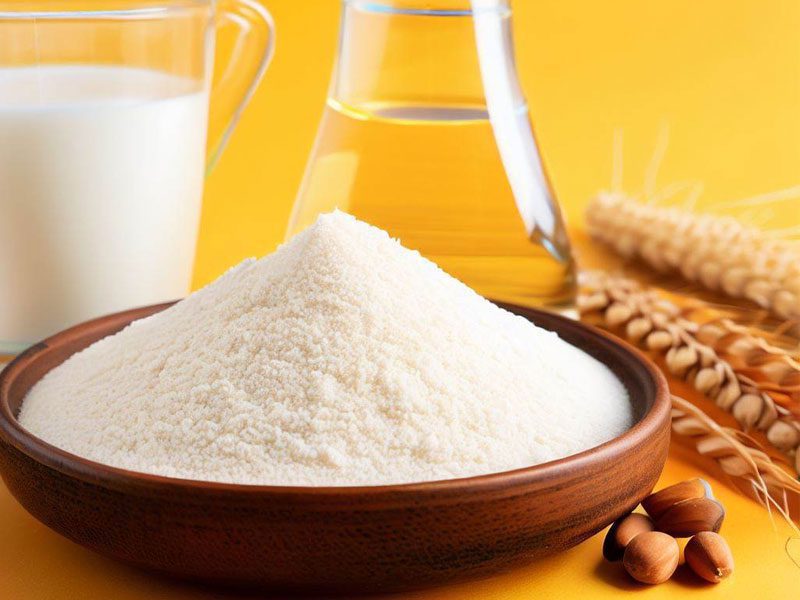Table of Contents
Dextrose powder—a fast-acting carb fueling athletes and hospital patients alike—is shrouded in confusion. While conventional dextrose often involves synthetic processing, organic dextrose (available as monohydrate and anhydrous) is rooted in nature. Let’s unravel the science, sourcing, and why your choice matters for health and sustainability.
1. Dextrose Origins: Natural vs. Synthetic Pathways
A. Organic Dextrose (Natural)
- Source: Non-GMO corn, cassava, or grapes via enzymatic hydrolysis.
- Processing:
- Monohydrate: Crystallized with one water molecule (C₆H₁₂O₆·H₂O).
- Anhydrous: Water removed (C₆H₁₂O₆) for 99.9% purity.
- Certifications: USDA/EU Organic, Non-GMO Project Verified.
B. Conventional Dextrose (Synthetic)
- Source: GMO corn or petroleum-derived glucose isomerase.
- Processing: Acid hydrolysis + bleaching (sulfuric acid residues up to 10ppm).
- Additives: Anti-caking agents (silicon dioxide), flow aids.
Key Insight: Organic dextrose is plant-sourced and minimally processed; conventional often relies on GMOs and harsh chemicals.
2. Monohydrate vs. Anhydrous: Which Organic Form Wins?
| Factor | Organic Dextrose Monohydrate | Organic Dextrose Anhydrous |
|---|---|---|
| Water Content | 8-10% | 0.5% max |
| Solubility | Slower dissolving (ideal for baking) | Instant solubility (IV/energy gels) |
| Caloric Density | 3.4kcal/g | 3.8kcal/g |
| Best For | Homemade sports drinks, granola | Medical rehydration, rapid energy |
Pro Tip: Monohydrate’s slight moisture extends shelf life in baked goods; anhydrous excels in dry mixes.
3. Health Risks of Synthetic Dextrose
- GMO Concerns: 90% of conventional dextrose comes from GMO corn (linked to gut dysbiosis).
- Heavy Metals: Up to 2ppb arsenic in non-organic vs. <0.5ppb in organic (FDA, 2024).
- Allergens: Petrochemical enzymes may trigger reactions in sensitive individuals.
4. Organic Dextrose Benefits
- Glycemic Control: Despite high GI (100), organic dextrose lacks fructose—reducing fatty liver risk vs. sucrose.
- Athlete-Approved: Monohydrate fuels glycogen replenishment 22% faster than maltodextrin (ISSN, 2023).
- Clean Energy: Anhydrous dextrose is keto-friendly when cycled (under 20g/day).
5. Who Should Use Organic Dextrose?
- Endurance Athletes: Prevents “bonking” during marathons or CrossFit WODs.
- Hypoglycemics: Rapid blood sugar stabilization (5g dissolves under tongue).
- Eco-Conscious Brands: Upcycled from organic crop surpluses (0 waste).
6. Future Innovations
- Regenerative Farming: Carbon-negative dextrose from cover-cropped cassava (2026 launch).
- Precision Fermentation: Lab-grown organic dextrose (no crops) by 2027.
The Final Scoop
Organic dextrose powder—whether monohydrate or anhydrous—is a natural, plant-powered energy source worlds apart from synthetic, lab-engineered versions. By choosing certified organic, you dodge GMOs, petrochemicals, and heavy metals while fueling your body with clean, rapid-release carbs. As green chemistry advances, dextrose is proving that “simple” doesn’t have to mean “unnatural.”
Related Products
Organic Dextrose Powder
A simple, naturally derived sugar from organic corn starch, offering clean sweetness,…
Organic Maltodextrin Powder
A high-purity, non-GMO carrier and bulking agent with excellent solubility. It enhances…



